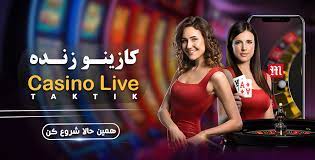Betting, a practice as old as civilization itself, has evolved significantly over the years. From ancient rituals to modern-day gambling, the تاک تیک بت industry encompasses a diverse range of activities and markets. This article delves into the various facets of betting, exploring its history, types, and the impact on society.
The History of Betting
Betting traces its origins to ancient civilizations. Historical records suggest that early forms of betting were prevalent in ancient Rome and Greece, where people placed wagers on the outcomes of various events, including gladiatorial games and chariot races. The Chinese and Egyptians also engaged in early forms of gambling, with activities ranging from dice games to betting on sporting events.
As societies evolved, so did betting practices. In medieval Europe, betting was often associated with various social events and tournaments. The advent of formalized betting took shape with the establishment of betting shops and racecourses in the 16th and 17th centuries. The Betting Act of 1853 in the UK marked a significant turning point, introducing regulation to curb illegal betting activities and ensure fair play.
Types of Betting
The betting landscape today is vast and varied, encompassing numerous types of betting activities:
- Sports Betting: This is perhaps the most popular form of betting, involving wagers on the outcomes of sporting events. From football and basketball to horse racing and esports, sports betting offers a wide range of options. Bettors can place bets on match outcomes, player statistics, and more.
- Casino Betting: Casino betting includes traditional casino games such as poker, blackjack, roulette, and slot machines. With the rise of online casinos, players can now enjoy these games from the comfort of their homes.
- Financial Betting: Also known as spread betting, this involves betting on the price movements of financial assets such as stocks, commodities, or currencies. It allows for high-risk, high-reward opportunities, and is popular among those with a keen interest in financial markets.
- Political Betting: Betting on political events and elections has gained traction, allowing individuals to wager on the outcomes of elections, referendums, and other political developments.
- Specialty Betting: This category includes betting on non-sporting events, such as reality TV shows, award ceremonies, and even weather events. Specialty betting offers a unique range of options for those looking to wager on unconventional outcomes.
The Impact of Betting
Betting has a profound impact on both individuals and society. On the positive side, it generates significant revenue for governments and businesses. The betting industry contributes to the economy through taxes, job creation, and tourism. Additionally, it can enhance the excitement and engagement of sports and entertainment events.
However, betting also has potential downsides. Problem gambling, or gambling addiction, is a serious concern, with potential consequences including financial hardship, relationship issues, and mental health problems. Responsible gambling measures and support services are essential to mitigate these risks. Many jurisdictions have implemented regulations and safeguards to promote responsible betting and protect consumers.
The Future of Betting
The betting industry continues to evolve with technological advancements. Online and mobile betting platforms have revolutionized the way people place bets, making it more accessible and convenient. Innovations such as blockchain technology and artificial intelligence are expected to further transform the industry, enhancing transparency, security, and personalization.
In conclusion, betting is a multifaceted activity with deep historical roots and a broad range of applications. While it offers excitement and economic benefits, it is crucial to approach it responsibly and be aware of its potential risks. As the industry continues to grow and adapt, staying informed about betting trends and practices will be key to navigating this dynamic landscape.

